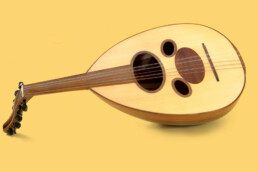5 min read
This brief post deals with the idea that hijamah (cupping) is mustahab (encouraged in the shari’ah). The point I make here is that it is not.
Cupping is an ancient medical practice that was practiced long before the Arabs, such as by the ancient Persians, Chinese and Egyptians, and something the Arabs widely practiced before the advent of prophethood. It wasn’t particular to the Prophet, nor was it a treatment that was specially ‘revealed’ to him (I deal with the hadith on angels later on). The vast majority of classical jurists held that cupping was a form of treatment for those in need and not an habitual practice, and as such, viewed it (a) as scientifically the best medical treatment available (and so, mustahab in that sense), and (b) neither a metaphysical nor ritual phenomenon.
Now some of the scholars who have explicitly discussed this are al-Adawi and al-Maziri, Ibn al-Qayyim and al-Bahuti, al-Kasani, Ibn Hajr and al-Nawawi (and too many others to recount here). Of course, this is in the context of medieval medicine and doesn’t even take into account that they would have kept up with developing medical knowledge (because that is how they saw it). Holding that cupping might be needed to purge foul blood (غلبة الدم) they based this on their understanding of biology and medicine of the time.
Take for example the statement of Ibn Taymiyyah:
An example would be of his (peace be upon him) cupping which was out of a need to extract contaminated blood. So is imitating (the Prophet) specific to the act of cupping or is the intent simply to remove blood in a way that is most conducive? It is known that emulating the Prophet is morally legislated, but the important thing to note is that if the country is hot whereby blood rises to the skin, cupping is better, and if the country is cold whereby blood settles in the vein, removing the blood by cutting open the vein (phlebotomy) would be most conducive.”
Majmu’ al-Fatawa
Here Ibn Taymiyyah states that the intent is simply to remove blood in a way that is most conducive and not a ‘sunnah’. And as he goes on, will those who insist on medieval medicine and live in a cold climate like that of the UK consequently opt for a phlebotomy instead of cupping? I’m not sure they will!
What we know is that the ancients neither had antibiotics and antivirals, nor analgesics (painkillers). In the context of the medieval era and the treatments that were widespread across the world the Prophet echoed the benefits of cupping. But in the context of it being a treatment, some simple logic dictates that its value is determined by scientific knowledge and advancements. So whilst the Prophet and his Companions cupped (as well as those before and after them), it was not as a ‘religious’ practice and thus not ‘sunnah’ in the sense that it is godly and virtuous, nor that it remains better than modern medicine, but merely that the Prophet did it (and why wouldn’t he if it was the standard treatment of the time?). I am not negating that it was beneficial at that time given the range of treatments they had, but that logic dictates a progression of thought.
Equally, to assert that merely because the Prophet did anything we should too is a primitive assumption long debunked and overlooks the simple notion that the Prophet lived in a historical context. Such a line of argument suggests that we should all ride animals, avoid all forms of modern technology (including our devices and social media!) and stick to the staple foods of ancient Arabia. Clearly, some of us might need to rethink our selective emulations. Some argue that:
- “The angels advocating cupping proves its metaphysical value.” It does not, it merely states that they advocated it as a treatment then, not that they would do so in 2018.
- “The hadith on the best times to do it show it’s not just about treating a problem.” No, the hadith are all weak according to Ahmad, al-Uqaily, and Ibn Hajr. Imam Malik (in Muntaqa) and Ahmad (narrated from al-Khallal) would cup without regard for time.
- “It’s not harmful so what’s the problem?” Firstly, I defer to medics and scientists as to what treatments are most advantageous/harmful since I am not a doctor. Secondly, most who cup are unqualified as many medics tell me, although I’m not entirely sure what appropriate qualifications are. Thirdly, even medieval scholars held that it should not be practiced as a habit. The Maliki jurist al-Adawi wrote in his hashiyah back then: ‘If the medical need for cupping ends, then it is not encouraged to do it since it might harm a person, for he (peace be upon him) only did it upon need.’ Fourthly, there is no spiritual/metaphysical value to it, so spending money believing so is a waste of finances and a skewed understanding of true subservience to God.
What’s the take home point?
Whilst there are hadith on the benefits of cupping, prophetic statements were made in an era when this was among the best medical treatments available – something that is determined by observation and enquiry (science). Regardless of whether people have had positive experiences from hijamah, it is not a ‘religious’ practice. Since the premodern era, humans have made phenomenal progress in the field of medicine, and if one insists on premodern medicine, then embracing it properly (in a cold country like ours) would mean turning to phlebotomy!
Please note: This post is intended for those who enquire about the religious value of cupping, who either have no idea how to think about the issue, or are not sure and require some clarity. This is not an attempt to engage the entirety of the debate, but a very brief summary of my (and the majority) position on the issue, that I’ve advocated for over a decade.




